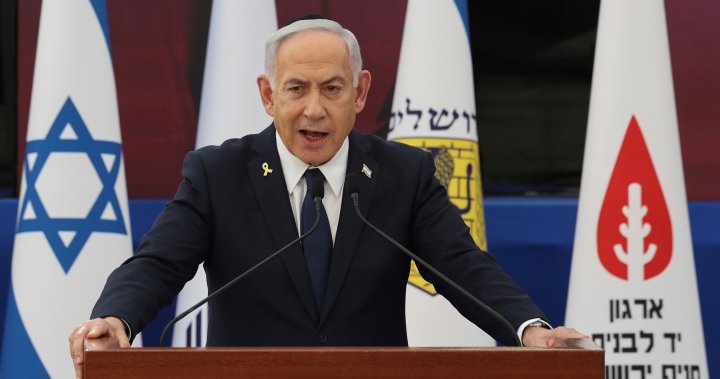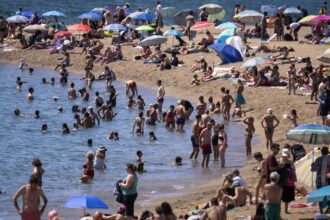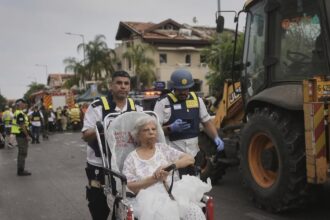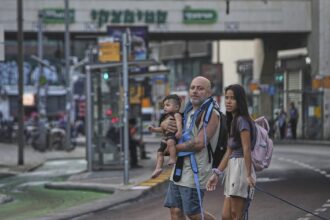In an unprecedented diplomatic clash, Israeli Prime Minister Benjamin Netanyahu has directly challenged Canada’s stance on the Gaza conflict, marking a significant escalation in tensions between the traditionally allied nations. During a televised address Wednesday, Netanyahu singled out Canada alongside France and the United Kingdom for their recent warnings against Israel’s planned military offensive in Rafah, where over a million Palestinian civilians have sought refuge.
“I deeply regret that Britain, France, and Canada have joined calls to prevent Israel from entering Rafah and completing the elimination of Hamas battalions there,” Netanyahu declared, his voice carrying the weight of a leader facing mounting international pressure. “These nations would not accept terrorist groups slaughtering their citizens with impunity—Israel deserves that same right to self-defense.”
The Prime Minister’s rebuke comes in direct response to a joint statement issued by Canada, France, and the UK earlier this week, which expressed “deep concern” about the humanitarian consequences of an Israeli military operation in Rafah. The three nations warned that such an offensive could lead to “catastrophic consequences for civilians” and urged Israel to prioritize civilian protection.
Foreign Affairs Minister Mélanie Joly has maintained that Canada’s position represents a balanced approach that acknowledges both Israel’s right to security and the urgent humanitarian crisis unfolding in Gaza. “We have consistently supported Israel’s right to defend itself against Hamas while advocating for the protection of civilian lives,” Joly stated during a press conference in Ottawa.
However, Netanyahu’s government appears increasingly frustrated with what it perceives as international interference in its security operations. Israeli officials have repeatedly emphasized that Hamas maintains significant military infrastructure in Rafah, which they claim must be dismantled to prevent future attacks.
The diplomatic tensions unfold against a backdrop of worsening conditions in Gaza, where the death toll has surpassed 34,000 people since October 7, according to the Hamas-run health ministry. International aid organizations have warned that a Rafah offensive could trigger a humanitarian catastrophe of unprecedented proportions, with limited escape routes for civilians already displaced multiple times.
Canadian Jewish and Palestinian community leaders have expressed divergent views on the government’s approach. David Cooper of the Canada-Israel Committee praised Netanyahu’s candor, stating, “Israel faces an existential threat and needs allies who understand the complexity of fighting terrorist organizations embedded within civilian populations.” Meanwhile, Sara Mahmoud of the Canadian Palestinian Association argued that “Canada’s warnings don’t go far enough when civilians are dying daily and international law is being violated.”
The conflict has increasingly divided Canadian politics, with Conservative leader Pierre Poilievre criticizing the Liberal government for what he describes as “abandoning a democratic ally,” while NDP leader Jagmeet Singh has called for stronger measures, including potential sanctions and an arms embargo against Israel.
As diplomatic efforts continue through multiple channels, including U.S.-led negotiations for a ceasefire and hostage release deal, the international community remains focused on preventing further escalation. UN Secretary-General António Guterres has called the situation in Gaza “apocalyptic,” urging all parties to prioritize civilian protection.
The question now facing Canadian policymakers is profoundly complex: How can Canada effectively advocate for civilian protection while maintaining its long-standing alliance with Israel and addressing the legitimate security concerns that have driven the conflict since Hamas’s October 7 attack? As the crisis deepens, these diplomatic calculations will only grow more challenging.










